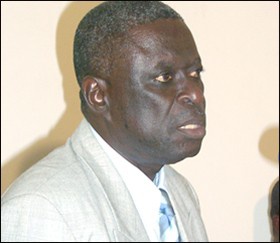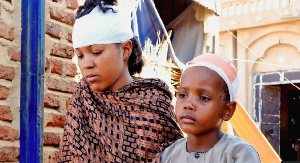Senior Presidential Adviser at the Presidency, Mr. Paul Victor Obeng, (popularly referred to as PV Obeng) has called on the business community and civil society to do more to establish their proper roles in the national discourse and progress and ensure that they can offer credible middle paths for compromise since any conflict or unnecessary tension in the nation would affect especially the business community the most.
Mr. P.V. Obeng made the comments in a lecture he delivered at the 1st Annual BJ Da Rocha Lectures instituted and organized by the Mancrest University College on Thursday. The event instituted to celebrate the life of the late BJ Da Rocha and commemorate the 84th birthday of the late Ghanaian politician and statesman was chaired by Hon. Yaw Osafo Maafo, former Minister of finance and Economic Planning.
In his lecture, Mr. Obeng described the late Da Rocha as a man of strong conviction who was, however, willing to shift position in the interest of the national development and progress. Mr. Obeng to emphasize his point on these qualities of the Mr. Da Rocha recalled his meetings with the late statesman in the aftermath of the 1992 Presidential elections and at a time when the NPP which Mr. Da Rocha then chaired had decided to boycott the Parliamentary polls.
Mr. Obeng noted that the meetings he had with Mr. Da Rocha were for a compromise to be found so the NPP could participate fully in the political process, and to ensure that Ghana’s democracy, which was then new born, started on a good note to foster many more years of constitutionalism.
Mr. Obeng said that it was as a result of such meetings that the NPP which though boycotted the parliamentary elections, participated fully in the national discourse which eventually ensured that Ghana’s democracy was strengthened.
Mr. P. V. Obeng who has held several high ranking positions in public service under almost all the administrations since the early 80s described Mr. Da Rocha as a statesman par excellence who should be celebrated and praised the University for rightfully instituting the lectures in memory of such a distinguished man.
According to Mr. Obeng, it is thanks to the hard work of especially the late Da Rocha that Ghana’s electoral system fostered and developed quickly with major reforms like the use of transparent ballot boxes etc. after the 1992 elections.
He described Mr. Da Rocha as a pioneer of integrity and compromise who never declined to offer his efforts to national development and progress even in his old age, citing the immense contribution of the late Da Rocha to the now famous IEA forum as an example of how even at an advanced age, Mr. Da Rocha gave his all to the nation.
Mr. Obeng stated that Mr. Da Rocha was one of the men he respected and continues to admire most for his sense of patriotism, his integrity and his willingness to set aside partisan positions in the interest of the nation.
He stated that Ghana was at a critical stage in its development, which needed more of the likes of the late Da Rocha to ensure that the bridges are built between the various factions in Ghanaian politics and society in general, to ensure that Ghana’s development is not bogged by unnecessary politicking, partisanship and division.
On his part, former finance minister, Yaw Osafo Maafo said suspicion had now taken a better part of Ghana’s discourse and noted that it was a major problem inhibiting the need to compromise and work in the national interest.
He noted, for example, the tendency for people in opposition to be described as moles anytime such persons try to build bridges with the ruling government and also the tendency for governments to be accused of trying to cover their bad deeds when they try to reach out to members of the opposition.
He told the audience that Havard University invited him, and four other former finance ministers of Africa to lecture over 20 current finance ministers in the past few weeks but described as regrettable the fact that, in the last five years, he had never spoken to any of Ghana’s finance ministers within the period.
Business News of Saturday, 18 May 2013
Source: GNA
Create middle paths for compromise - PV Obeng urges businesses













